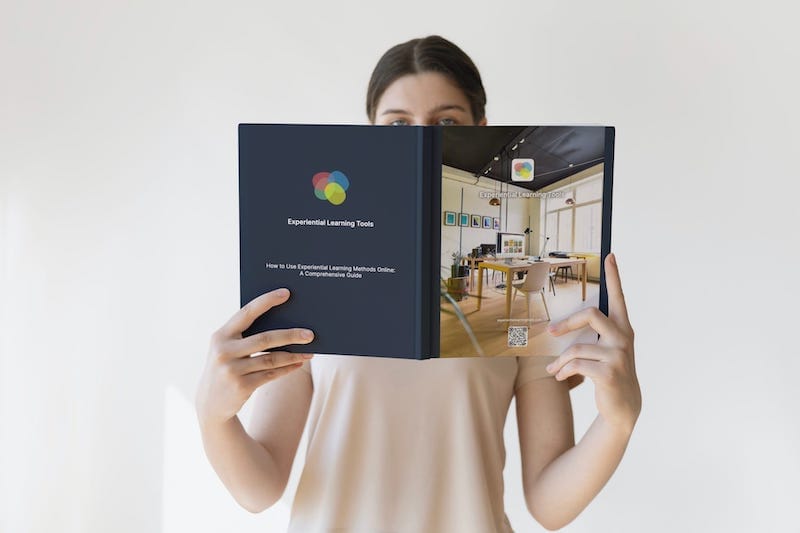Experiential learning is a leading methodology for modern learning. It captures the attention and commitment of educators, businesses, and learners worldwide. This hands-on approach to learning has transcended traditional boundaries, fostering a global movement towards immersive, real-world educational experiences.
Experiential learning is a process through which learners acquire knowledge, skills, and values from direct experiences. Learning is done outside a traditional academic setting. Unlike rote memorisation or passive learning, the principles of experiential learning involves active engagement and the application of practical skills in real-life scenarios.
The experiential learning methodology is built on the foundation that learning is most effective when it is participatory and directly relevant to the learner's life and career aspirations. By being actively engaged in experiences participants gain insights and competencies that are both profound and personal.
The Rise of Experiential Learning
The popularity of experiential learning is not just anecdotal (and we're a far from impartial source); it is supported by a growing body of evidence and data.
Programs incorporating experiential learning strategies have seen significant increases in student engagement, retention rates, and overall satisfaction. Learners and educators believe experiential learning contributes more effectively to personal growth and career readiness than traditional learning methods.
The sector is growing through the lens of financial metrics. A recent post by Investor Observer notes the
projected growth for the wider EdTech industry (growth of $549.6 billion by 2033) with special mention to experiential learning.
A Worldwide Phenomenon
The adoption of experiential learning tools and methodologies spans the globe, reflecting a diverse and expansive customer base. Looking at the customer base of Experiential Learning Tools we have customers in:
- America
- Europe
- Asia
- Africa
- Australia
Globally we've helped trainers deliver impactful and meaningful virtual training sessions. We've seen:
Companies of all shapes and sizes are embraced it as a means to accelerate professional development and innovation. Experiential learning initiatives are transforming community development and entrepreneurship.
What really excites us is seeing experiential learning methodologies being used to address environmental, technological, and societal challenges facing the world today.
The Future of Experiential Learning
The trajectory of experiential learning points towards continued growth and innovation. As the world becomes increasingly interconnected and the pace of change accelerates, the demand for adaptive, resilient, and skilled individuals is unprecedented.
Experiential learning, with its emphasis on critical thinking, collaboration, and real-world application, is uniquely positioned to meet these challenges. The future will likely see the development of more sophisticated experiential learning platforms, leveraging technology to create immersive, customisable learning experiences that reach even wider audiences.
Take the Leap with Experiential Learning Tools
If you're seeking to transform your educational approach or enhance your professional skills, now is the time to embrace experiential learning. By signing up for Experiential Learning Tools, you'll gain access to a world of opportunities to learn by doing, connect with a global community of learners and educators, and prepare yourself for the challenges of tomorrow. Browse our
examples of experiential learning activities to get a sense of what you can do.
Don't miss out on the chance to be part of this educational revolution.
Join us today and start your journey towards a more engaging, effective, and fulfilling learning experience.
If you would like to speak to a member of the sales team drop us an email at
sales@experientiallearningtools.com.

